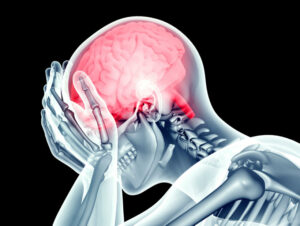
Brain injuries, including traumatic brain injuries, can deeply affect your health, job and ability to earn a living.
If you are a worker, you could experience a brain injury at work through various scenarios depending on your industry and workplace. It is important to understand the risks associated with specific job roles and recognize the signs of brain injuries.
Causes of work-related brain injuries
In construction, maintenance and warehouse jobs, employees often work at heights. Falling from ladders or scaffolding can cause severe head injuries. In these sectors, risks are higher due to loose materials and uneven surfaces, as well as the use of heavy machinery.
Transportation and delivery services also present significant risks for brain injuries, primarily through vehicle accidents. Drivers and couriers can suffer head injuries from crashes or sudden stops. They can also get hurt while loading and unloading goods.
Manufacturing and industrial settings have potential hazards that could lead to brain injuries, too. Broken machinery, items falling from shelves and accidents with forklifts can cause serious harm.
Healthcare workers, particularly those in emergency services and psychiatric care, face risks of violence from patients or accidents during the rush to provide care, leading to possible head injuries. First responders, including firefighters and police officers, often enter dangerous environments where debris, explosions or physical altercations can result in brain injuries.
Brain injury symptoms and complications
The symptoms of a brain injury can range from mild to severe, depending on the extent of damage to the brain. Mild cases may result in more subtle symptoms, such as headaches, dizziness and blurred vision.
Moderate to severe brain injuries can lead to more profound effects, including:
- Nausea or vomiting
- Difficulty awakening from sleep
- Convulsions or seizures
- Weakness or numbness in the extremities
- Irritation and confusion
Recognizing these symptoms early is crucial for prompt treatment and recovery.
Work injuries that affect the brain can lead to several long-term complications. Cognitive problems, including difficulties with attention, memory and problem-solving, are common. People may also exhibit behavioral changes, including aggression and impulsivity. Physical complications can include seizures, muscle spasticity and chronic pain.
Addressing the risks associated with brain injuries in the workplace is a vital step toward creating a safer and more resilient workforce.
